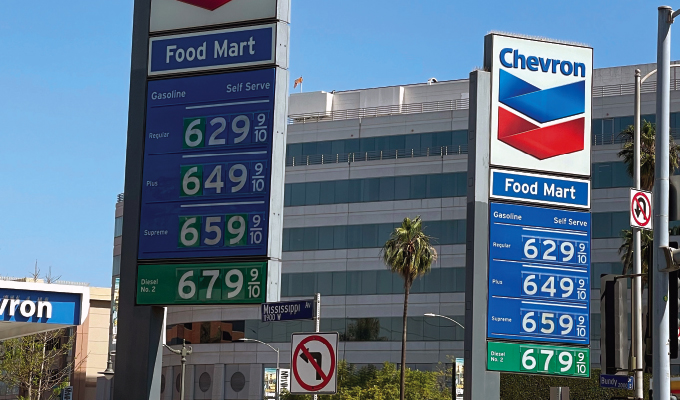If your fleet runs on diesel or gasoline, you already know fuel prices have vastly increased. The rise in prices began even before Russia invaded Ukraine, yet the war made prices soar even higher. The Diesel Technology Forum recently reported on the increase, stating that diesel engines and fuel are the lifeblood of the global economy. So, when the price of diesel fuel increases, we all feel the impact. Read more from the Diesel Technology Forum as well as ways to lessen the impact from price increases below.
Diesel engines are found in airplanes, farming and construction equipment, marine vessels, industrial machines, power generation equipment, and more. Diesel engines also dominate the commercial trucking industry, as many of our readers know. Further, diesel engines don’t only dominate in the US, they are used on a wide scale globally. Any increase in the price of diesel fuel will impact multiple industries, worldwide. And we’re currently seeing the impacts of diesel fuel price increases now.
WHY THE INCREASE
The Diesel Technology Forum reports that because diesel is a global commodity, prices and supply here in the States reflect the demand of diesel in other countries. The Diesel Technology Forum states, the “current rise in diesel fuel prices in the US is due to several converging factors including the higher costs of crude oil currently at $105 per barrel, decreased US production of diesel fuel, and generally low stockpiles or inventories available.”
Aside from these already provoking factors, the oncoming warmer weather and waning pandemic also play a role in the rising fuel prices, adding an increase in the demand for fuel for air travel. And yet, all of these impacts contributed to increasing fuel prices before Russia’s invasion of Ukraine, which added uncertainty to the market as Europe imported roughly 50% of its fuel from Russia.
DECREASING THE IMPACT
Until the price of diesel fuel decreases, what steps can you take to save money at the pump? Consider parking your older vehicles and using the newer ones (2011 models or newer). Newer models feature diesel engines that are more fuel efficient. Use alternative, less expensive fuels, such as biodiesel. Consider using lubricants and fuel additives that improve the efficiency of your engine. Finally, change driving habits such as idling or speeding to cut down on fuel used.
Although the price of fuel might cause consumers to park their gas-guzzling vehicles, work truck fleet owner/operators can’t afford not to use them. In instances like these when a multitude of factors beyond our control impact the price of fuel, sometimes all we can do is adapt the best we can.
Read the Diesel Technology Forum’s full article at www.dieselforum.org.




